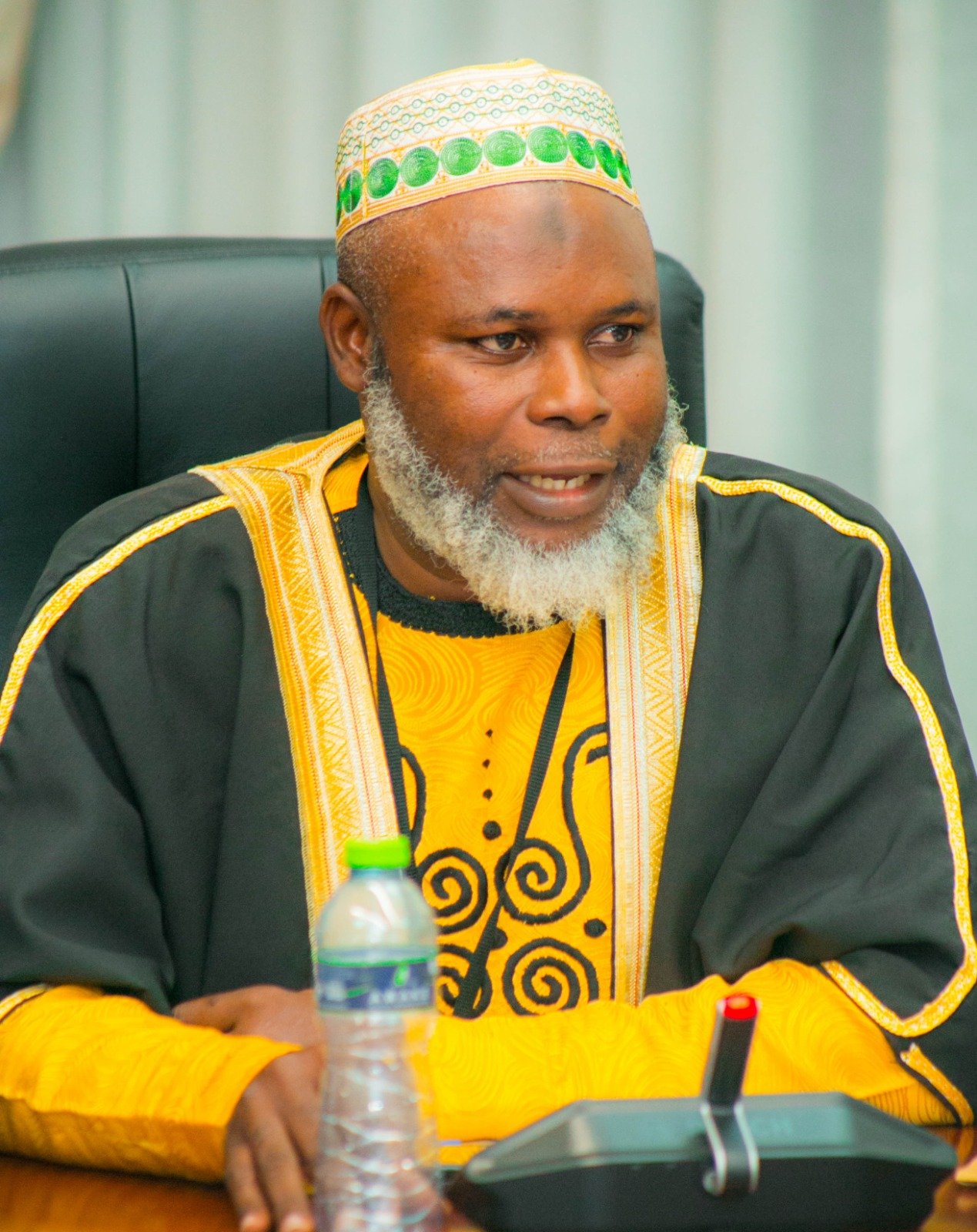Fruitful Living
Christlike love

Love one another with brotherly affection
No temptation has overtaken you except what is common to mankind. And God is faithful; He will not let you be temptedbeyond what you can bear. But when you are tempted, He will also provide a way out so that you can endure it. And now these three remain: faith, hope and love. But the greatest of these is love. – 1 Corinthians 10:13; 1:13
INTRODUCTION
Among the many problems the Corinthian church faced, one thorny issue centred on the nature and purpose of spiritual gifts. Some church members viewed the type of gift a believer possessed as a measuring stick for their level of spirituality. In response to this issue, Paul sent out a basic rule for consideration of all spiritual gifts – all Christians share the common confession of faith: Jesus is Lord.
On this foundation Paul affirmed the value of spiritual gifts and insisted they are not a means for ranking Christians. He listed various gifts and declared that each gift came from one and the same source – the Holy Spirit. Using the analogy of the body, Paul argued that every gift is necessary; therefore, every Christian is important. All gifts, no matter what purpose they serve in the church, must be governed by Christlike love.
Without Christlike love as their motive, spiritual gifts are empty shells. Love expressed is the way church members then and today are to demonstrate they are the body of Christ on earth. Furthermore, Paul reminded them that when the church gathers for worship, the purpose should always be to exalt God and strengthen all who are present.
1 CORINTHIANS 13:1-13
If I speak in the tonguesof men or of angels, but do not have love, I am only a resounding gong or a clanging cymbal. If I have the gift of prophecy and can fathom all mysteries and all knowledge, and if I have a faith that can move mountains, but do not have love, I am nothing. If I give all I possess to the poor and give over my body to hardship that I may boast, but do not have love, I gain nothing.
Love is patient, love is kind. It does not envy, it does not boast, it is not proud. It does not dishonour others, it is not self-seeking, it is not easily angered, it keeps no record of wrongs. Love does not delight in evil but rejoices with the truth. It always protects, always trusts, always hopes, always perseveres.
Love never fails. But where there are prophecies, they will cease; where there are tongues, they will be stilled; where there is knowledge, it will pass away. For we know in part and we prophesy in part, but when completeness comes, what is in part disappears. When I was a child, I talked like a child, I thought like a child, I reasoned like a child. When I became a man, I put the ways of childhood behind me. For now we see only a reflection as in a mirror; then we shall see face to face. Now I know in part; then I shall know fully, even as I am fully known. And now these three remain: faith, hope and love. But the greatest of these is love.
1 CORINTHIANS 14:1-40
Follow the way of love and eagerly desire gifts of the Spirit, especially prophecy. For anyone who speaks in a tongue does not speak to people but to God. Indeed, no one understands them; they utter mysteries by the Spirit. But the one who prophesies speaks to people for their strengthening, encouraging and comfort. Anyone who speaks in a tongue edifies themselves, but the one who prophesies edifies the church. I would like every one of you to speak in tongues, but I would rather have you prophesy. The one who prophesies is greater than the one who speaks in tongues, unless someone interprets, so that the church may be edified.
Now, brothers and sisters, if I come to you and speak in tongues, what good will I be to you, unless I bring you some revelation or knowledge or prophecy or word of instruction? Even in the case of lifeless things that make sounds, such as the pipe or harp, how will anyone know what tune is being played unless there is a distinction in the notes? Again, if the trumpet does not sound a clear call, who will get ready for battle? So it is with you. Unless you speak intelligible words with your tongue, how will anyone know what you are saying? You will just be speaking into the air. Undoubtedly there are all sorts of languages in the world, yet none of them is without meaning. If then I do not grasp the meaning of what someone is saying, I am a foreigner to the speaker, and the speaker is a foreigner to me. So it is with you. Since you are eager for gifts of the Spirit, try to excel in those that build up the church.
For this reason the one who speaks in a tongue should pray that they may interpret what they say. For if I pray in a tongue, my spirit prays, but my mind is unfruitful. So what shall I do? I will pray with my spirit, but I will also pray with my understanding; I will sing with my spirit, but I will also sing with my understanding. Otherwise when you are praising God in the Spirit, how can someone else, who is now put in the position of an inquirer, say “Amen” to your thanksgiving, since they do not know what you are saying? You are giving thanks well enough, but no one else is edified.
I thank God that I speak in tongues more than all of you. But in the church I would rather speak five intelligible words to instruct others than 10,000 words in a tongue.
Brothers and sisters, stop thinking like children. In regard to evil be infants, but in your thinking be adults. In the Law it is written:
“With other tongues and through the lips of foreigners I will speak to these people, but even then they will not listen to me, says the Lord.”
Tongues, then, are a sign, not for believers but for unbelievers; prophecy, however, is not for unbelievers but for believers. So if the whole church comes together and everyone speaks in tongues, and inquirers or unbelievers come in, will they not say that you are out of your mind? But if an unbeliever or an inquirer comes in while everyone is prophesying, they are convicted of sin and are brought under judgement by all, as the secrets of their hearts are laid bare. So they will fall down and worship God, exclaiming, “God is really among you!”
GOOD ORDER IN WORSHIP
What then shall we say, brothers and sisters? When you come together, each of you has a hymn, or a word of instruction, a revelation, a tongue or an interpretation. Everything must be done so that the church may be built up. If anyone speaks in a tongue, two—or at the most three—should speak, one at a time, and someone must interpret. If there is no interpreter, the speaker should keep quiet in the church and speak to Himself and to God.
Two or three prophets should speak, and the others should weigh carefully what is said. And if a revelation comes to someone who is sitting , the first speaker should stop. For you can all prophesy in turn so that everyone may be instructed and encouraged. The spirits of prophets are subject to the control of prophets. For God is not a God of disorder but of peace—as in all the congregations of the Lord’s people.
Women should remain silent in the churches. They are not allowed to speak, but must be in submission, as the law says. If they want to inquire about something, they should ask their own husbands at home; for it is disgraceful for a woman to speak in the church.
Or did the word of God originate with you? Or are you the only people it has reached? If anyone thinks they are a prophet or otherwise gifted by the Spirit, let them acknowledge that what I am writing to you is the Lord’s command. But if anyone ignores this, they will themselves be ignored.
Therefore, my brothers and sisters, be eager to prophesy, and do not forbid speaking in tongues. But everything should be done in a fitting and orderly way.
CONCLUSION
Christian teaching and learning are illuminated by the Spirit, but they do not circumvent the mind. The substance of the Christian faith is intelligible, and the communication of the Christian faith must be rational. The study desk and the prayer closet are both essential to Christian teaching and learning. Teaching is an attempt to communicate, not to display personal spiritual powers or gifts. Teachers serve learner’s needs rather than satisfy personal ego problems.
God’s good world has been infiltrated by those who seek to harm good people and good causes. God allows good and evil to exist side by side, but gives specific instructions as to how His people shall deal with evil. By dealing with it properly, we can become stronger in character.
Stay blessed!
For further inquiries please contact us on Tel Nos. 0268130615 or 0243588467.
Email: saltnlightministries@gmail.com
Website: saltandlightministriesgh.org
By Dr Joyce Aryee, the author
Fruitful Living
Institution of Marriage in Islam (Pt.3)

Regarding sexual intimacy, it is also prohibited for a wife to demand money or gifts before allowing her husband to engage in sexual relations. Islam views this as a form of exploitation and sin. A marital relationship must be based on mutual love, respect, and affection rather than material gain.
Prohibition of sexual intercourse during menstruation
Islam has clear guidelines regarding sexual relations during certain times, particularly when a woman is menstruating. The Qur’an prohibits sexual intercourse during menstruation, stating:
“And they ask you about menstruation. Say: ‘It is harm, so keep away from women during menstruation. And do not approach them until they are pure. And when they have purified themselves, then come to them from where Allah has ordained for you. Indeed, Allah loves those who are constantly repentant and loves those who purify themselves’” (Qur’an 2:222).
This verse emphasises the importance of refraining from sexual activity during menstruation due to physical and spiritual reasons. However, all other forms of affection and companionship are allowed, and husbands should continue to care for their wives during this time with love and respect.
Islamic law encourages cleanliness and personal hygiene, especially in matters related to physical intimacy. After the menstruation period ends, it is recommended that the wife perform ghusl (ritual purification) before resuming sexual relations with her husband.
Rights of Children on Parents
Islam emphasises the rights of children on their parents, as marriage is the foundation of family life. Parents are obligated to provide their children with proper care, education, and moral guidance. The Qur’an states: “O you who have believed, protect yourselves and your families from a Fire whose fuel is people and stones…” (Qur’an 66:6).
This highlights the parents’ responsibility to raise their children with a strong sense of morality and faith. Children have the right to a good name, religious upbringing, and education, and they must be treated with fairness and love.
In Ghana’s law, there is Children’s Right Act, Act 560 (1989) which states among other things,
• Section 4, Right to Name, Nationality and secure a Birth Certificate for the child
• Section 6(3) (a&b), protection from neglect, provide good guidance, care etc
• Section 8(1&2), Right to education and wellbeing (medical care, diet, clothing, shelter).
How Do Married Couples Resolve Their Differences in Islam?
Islam provides clear guidelines for resolving marital conflicts in a just and compassionate manner.
The Qur’an instructs that in the event of marital discord, both parties should seek reconciliation:
“If you fear dissension between the two, send an arbitrator from his people and an arbitrator from her people. If they both desire reconciliation, Allah will cause it between them” (Qur’an 4:35).
The goal is always to preserve the marriage and restore harmony. If reconciliation is not possible, Islam permits divorce as a last resort, but it is considered the most disliked permissible act in the eyes of Allah (SWT).
Rewards of Marriage in Islam
Marriage in Islam is not only a social institution but also an act of worship that brings great rewards. The Prophet Muhammad (PBUH) said: “When a man marries, he has fulfilled half of his religion, so let him fear Allah regarding the remaining half” (Bayhaqi, Shu’ab al-Iman).
Married couples are rewarded for fulfilling their marital responsibilities, showing kindness to each other, and raising righteous children who contribute positively to society.
Scholarly Thoughts About Marriage in Islam
Islamic scholars, such as Imam Al-Ghazali, have discussed marriage as a means of controlling desires and fulfilling one’s spiritual obligations. Modern scholars like Sheikh Yusuf Qaradawi also stress the importance of mutual respect and understanding in marriage, ensuring that both partners can grow spiritually and emotionally within the marriage.
Conclusion
In conclusion, marriage in Islam is a divinely ordained relationship based on mutual love, respect, and responsibility. By following the guidance of the Qur’an and Sunnah, and observing the legal frameworks in place, such as Ghana’s Mohammedan Ordinance, we can establish strong and harmonious marriages that contribute to the moral and spiritual development of society. May Allah (SWT) guide us to fulfill our marital responsibilities with sincerity and love.
The Writer is Kpone Katamanso Municipal Chief Imam, Democracy and Governance Law Student, UCC, Member of Ghana National Association of Certified Counsellors Certified by Ghana Psychology Council
References:
1.Qur’an, Surah Ar-Rum (30:21)
2.Qur’an, Surah An-Nisa (4:34, 4:4, 4:19, 4:35)
3.Qur’an, Surah Al-Baqarah (2:187, 2:221, 2:222, 2:223)
4.Qur’an, Surah At-Tahrim (66:6)
5.Ibn Majah, Hadith 1845, 1905
6.Tirmidhi, Hadith 1162, 1084
7.Bukhari, Hadith 5090
8.Children’s Right Act, Act 560 (1989)
9.Bayhaqi, Shu’ab al-Iman
10.Al-Ghazali, Ihya Ulum al-Din
11.Qaradawi, The Lawful and Prohibited in Islam
Fruitful Living
Adansi North DCE marks birthday on Farmers’ Day

It was a momentous day for the Adansi North District Chief Executive, Eric Kwaku Kusi, last Friday November 8, as the 40th National Farmers Day district level celebration held here at Adansi Adokwai coincidentally fell on his birthday.
On a low-key, Mr Kusi momentarily took to the floor, to exhibit his dancing skills responding to cheers of “Happy Birthday to you” from the audience, to which he also responded with a gesture of thanks and praises to God, as he stepped out to address the gathering.
He was joined on the dancing floor by the assembly members singing praises to God for the life of their indefatigable DCE.
In his address, Mr Kusi commended farmers in the Adansi North and the country as a whole “who tirelessly cultivate the land to feed all of us in our communities.”
He said the government realising the important role agriculture played in the economy and the challenges facing farmers due to the effects of climate change was rolling out initiatives and policies to support climate-resilient agriculture, including agriculture insurance programme for farmers.
In all 16 farmers were awarded various prizes for their contribution to food sufficiency in the country.
Francis Appiah, 41, who hails from Adokwai was adjudged the District Best Farmer for 2024, and took home a tricycle and other assorted items. The first runner-up prize went to Sakyi Kwabena also from Adokwai and the second runner-up went to Kwame Gyamera from Dompoase.
From Alhaji Salifu Abdul-Rahaman, Adansi Adokwai







